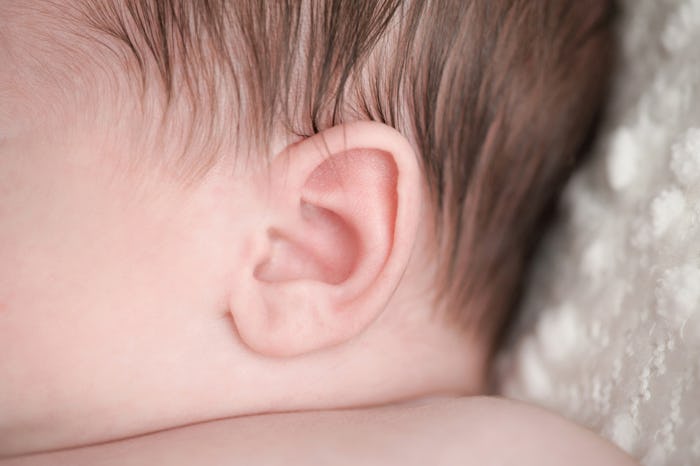Life

Does CMV In Newborns Always Cause Hearing Problems?
As newborn screening programs continue to progress, developments and results can often be overwhelming for new parents. Especially when it comes to those tests with long names, and potentially scary outcomes, like cytomegalovirus, or CMV. Because CMV has such a serious connotation, it's important to ask questions about the test and its results. You want to know, does CMV in newborns always cause hearing problems?
First, what is CMV? According to The National CMV Foundation, CMV is a member of the herpes virus family. Though that may sound scary in itself, coming into contact with CMV is actually fairly common, and is generally harmless to most of the population. A CMV infection usually causes cold like symptoms that last for a few short weeks and are rarely a cause for concern in healthy children and adults. However, the Foundation went on to state that CMV can cause serious health problems for those with weakened immune systems, and can cause severe disease in babies who have been infected before birth.
According to Dr. Mark Schleiss of the University of Minnesota Children's Hospital, CMV is one of the most common infections that can cause hearing loss in newborns. By no means is it the only infection that can cause hearing loss in newborns, but as the most common, its origins and effects are important to know. CMV that is passed from a mother to her unborn child in the womb is known as congenital CMV, and is shockingly common. According to Schleiss, about one percent of all newborns are born with a congenital CMV infection. Schleiss pointed out that since around four million babies are born in the United States every year, this means about 40,000 babies are born with congenital CMV infections annually.
However, not all babies born with a congenital CMV infection will develop hearing loss. According to the National CMV Foundation, 90 percent of babies born with a congenital CMV infection will present asymptomatic, showing no visible signs of the virus or its effects. Around 10 to 15 percent of babies born with a congenital CMV infection will develop hearing loss, according to the foundation. However, some babies who are born with a congenital CMV infection that present asymptomatic may wind up with hearing loss (and other side effects) further on down the road. According to the American Academy of Pediatrics, about 25 percent of hearing loss in children by four years of age is likely CMV related.
So what can you do to prevent your baby from inheriting a congenital CMV infection? According to the Centers for Disease Control and Prevention (CDC), between 50 and 80 percent of people in the United States have had a CMV infection by the time they are 40 years old. Your first line of defense against CMV, according to the National CMV Foundation, is knowing your risk, and getting screened for CMV. And according to the Mayo Clinic, careful hygiene is the best prevention against CMV. If you are pregnant and concerned that you may have a new case of CMV, or have had it in the past, talk with your doctor about what you can do to prevent CMV from affecting your pregnancy.